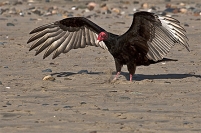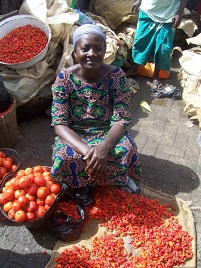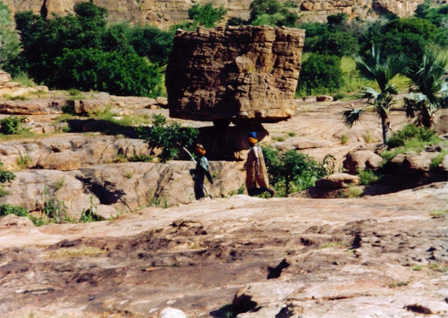Erstellt am: 30. 1. 2012 - 14:21 Uhr
The Vultures Are Swooping
There are few more vivid examples of the financial system pitting the interests of the tiny rich elite against those of the poor masses than the phenomenon of vulture funds, where wealthy financiers, often based in off shore tax havens, extract money from the poorest most vulnerable countries in the world.

mikebaird / CC BY 2.0
A vulture fund is essentially a financial company that buys up bits of Third World debt that a poor country has defaulted on – a debt that the country won’t or can’t pay. This often happens because the country has descended into conflict and chaos or has been crippled by an economic crisis. There are specialized financiers who see this as an opportunity, explains Nick Dearden, the director of Jubilee Debt Campaign. These “vultures” swoop down from their thermals when the original creditor, which is often a state, realizes that it faces a long wait to recoup its loans and so, just to clear the books, is happy to sell off the debt at a cut-price to private companies on the secondary market.
“The vulture funds buy up the debt,” says Dearden, “with the sole purpose in mind of being able to recoup the full amount from the country at some point in the future when the country becomes solvent again.”
"Loan Sharks"
$1 billion has already been paid out to vulture funds and the IMF estimates that vulture funds are currently pursuing a further $1.5 billion worth of claims often from the poorest and most fragile countries on the planet. Campaigners have likened the vulture financiers to loan sharks.

chris cummins
The claims often come as a nasty surprise for Third World countries. The debts were often contracted in the 1970s and 1980s by regimes that Dearden describes as “very odious” but unlike individuals and companies, countries can’t declare themselves bankrupt. “Current governments are unlikely to even know that the debt exists. All of a sudden they find themselves in a legal battle with a company they know nothing about for a debt for which they have no direct responsibility.
In this way the bad old “Big Men” of Africa haunt African countries for a second time. An investigation in the Guardian recently revealed that the Democratic Republic of the Congo is being sued by several vultures for debts accrued under the wasteful and despotic regime of President Mobutu when the country was still called Zaire. Infamously free-spending, Mobutu used to jet around the world in a chartered Concorde so it´s not surprising that massive debts were run up under his appalling custodianship. When he was finally removed from power the country was in ruin.
"Completely Illogical"
“Congo had no way of paying its debts,” wrote the Guardian. “They were too large, and the war was tearing the country apart.” So the vultures swooped and now the DR Congo is fighting them off in the courts. The Guardian report claimed a US-based vulture fund was suing DR Congo in a court in a tax haven of Jersey of $100m for an original debt of $3.3m which was originally owed to a Bosnian state-owned company.
“It seems completely illogical that these debts can be carried over when firstly they can’t pay them and secondly they were run up by very poorly run regimes,” says Joseph Stead, the Senior Economic Justice Adviser at Christian Aid. “It’s unbelievable that they can be held liable for these debts.” He is calling on international law to take steps to stop this sort of practice.
Once they have been notified that a legal case is being mounted against them by vulture financiers, Dearden says the poor governments are stuck between a rock and a hard place: “You’re either going to have to buy them off with a concession in one of your mines or something like that, or you are going to have to face them in court.” That means investing in expensive legal fees with no guarantee of success. “Ultimately you risk losing the battle and risk losing tens or even hundreds of millions of dollars to a company that you know almost nothing about.”

Chris Cummins
This can have a significant impact on poor countries` development. Take the example of Zambia. In the 1970s, Zambia bought some rather shoddy tractors from Romania for 3 million dollars. Zambia couldn't pay, and a private financial company based in the British Virgin Islands bought the debt. In 2007, this financial company sued Zambia for $42m - 14 times the original debt. The case went to court, and although Zambia ultimately only had to pay $15.4m the bill still hit the country hard. $15m dollars equated to roughly 5% of the Zambia’s health budget for that year. “In a country with a HIV prevalence rate of 17% you can just imagine the huge impact that has,” says Stead.
Failing Legislation
The absurdity of the situation hasn’t escaped the notice of world leaders who have noted that such ruling were undoing all the benefits that debt relief had achieved in the first place. As long ago as 2002, vulture funds were described by former British Prime Minister Gordon Brown as “perverse and immoral” and yet the practice continues. How?
Over the past two decades there has been a growing recognition that interest payments in debt were stalling development in the Third World. This led to a movement for governments in the West to forgive debts with the International Monetary Fund and the World Bank. But the scheme was voluntary and companies weren’t included. National policy was informed by the increasing ethical discomfort of the voting public. Responsible only to shareholders, private finance companies had no such scruples and they faced no legal obligation to act ethically. “Unfortunately,” says Stead, “apart from where there has been national legislation nothing can be done to stop these companies pursuing the debt.”
The legal fight back has begun. The debt cancellation movement came with many checks and balances. It didn’t remove all debt but allowed creditors to claim back smaller amounts that the poor countries could manage – often only 10%. In the UK there is now ground-breaking legislation, pushed through during the dying days of the Labour government, that stipulates that private companies can’t demand full repayment from those poor countries who have been offered partial debt relief by the Heavily Indebted Poor Countries (HIPC) initiative which covers countries like Zambia and DR Congo.
A Spectre for Europe
In the US, a Democratic Congresswoman called Maxine Waters did promote a colorfully-titled anti-vulture fund bill called "Stop Very Unscrupulous Loan Transfers from Underprivileged countries from Rich Exploitive Funds Act". The bill didn’t get far, however, and until the sort of restrictions imposed in Britain become more universal, the companies just have to move their claims elsewhere. Often they don’t have to go far. Cases once tabled for British hearings are now being pursued in the Crown Dependency of Jersey – the tax haven in the Channel that has its own judicial system independent of UK law.
There is currently a perverse irony that the current form of debt relief has made poor countries newly vulnerable to the vulture financiers. Zambia was targeted after debt relief and a new aid package had made it solvent again meaning it was theoretically able to start paying again. This phenomenon could soon haunt Europe. Greece is currently trying to get its debt written down and many companies are holding out against being included in any debt forgiveness. They will try and collect their rewards as Greece stumbles back to its feet in the future.
“It really is the most irresponsible companies that are profiting the most,” says Dearden.
Dieses Element ist nicht mehr verfügbar


